Freakonomics' Crime & Abortion Theory is Complete Bullshit
Freakonomics is about as scientific as phrenology, and about as eugenic as Herbert Spencer.
“Freakonomics” was a best-selling book that spawned a best-seller, a sequel, a podcast, all of it based on steaming pile of truly terribly scholarship. Some actual economists have complained that none of what Freakonomics talks about has anything to do with economics. What’s notable, however, is that it’s also terrible history, politics, criminology, and the law.
One of the most inflammatory claims of the book Freakonomics linked better access to abortion with dropping crime rates. Some experts had predicted a wave of “super-criminals” in the 1990s that never materialized. Why not? Levitt and Dubner argued that they had been aborted, and the proof was that states that legalized abortion first were the first ones to see the drop in crime.
The argument is also blatantly racist and eugenicist. Levitt once bluntly said that the U.S. had “aborted a generation of criminals.” (In fact, in earlier versions of the argument, he more specifically related it to African-American women having abortions, but this was cleaned up for the official publication).
The entire idea that there were going to be “super-criminals” is completely ludicrous. It was political fearmongering in order to justify draconian crackdowns in the 1990s that vastly increased incarceration in the U.S..
Criticisms of the argument that crime rates dropped because of increased access to abortion pointed out that there mistakes in both the data and in how it was interpreted.
Many people have debunked the abortion-prevents-crime argument.
But the arguments also suffer from American myopia: Canadian and U.S. violent crime rates followed a similar pattern of increase and decline, but Canada’s crime policies and in fact its abortion laws were different.
This is Levitt and Dubner’s pat summary of the 1960s.
“During the first half of the 20th century, the incidence of violent crime in the United States was, for the most part, fairly steady. But in the 1960’s it began to climb. In retrospect, it is clear that one of the major factors pushing this trend was a more lenient justice system. Conviction rates declined during the 1960s, and criminals who were convicted served shorter sentences. This trend was driven in part by an expansion of the right of people accused of crimes… At the same time, politicians were growing increasingly softer on crime - “for fear of sounding racist,” as the economist Gary Becker has written, “since African Americans and Hispanics commit a disproportionate share of felonies.”
As I will explain in greater detail later on, this paragraph starts with a colossal error - the incidence in violent crime in the United States, was not, for the most part, fairly steady. In fact, 1960 was the lowest violent crime rate in the U.S. in the century between 1910 and 2010.
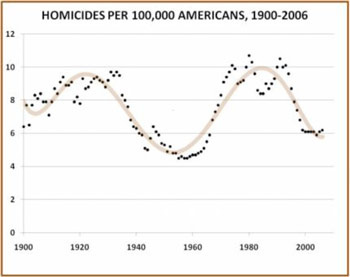
This inexplicable error casts the entire hypothesis into doubt. If supposedly “liberal” laws “caused” violent crime to increase in the 1960s and 70s, why was the homicide rate more than twice as high in the 1920s, when “laissez faire” conservatism prevailed?
The murder rate dropping from 1938 onward coincides with FDR and the New Deal Democrats and the “Great Compression” which is when inequality improved.
The rest of the paragraph is a completely political interpretation - an untested invention. It’s not an economic analysis. It’s a partisan political just-so story, but because supposedly impartial economists are saying it, it’s taken seriously.
That includes the statement by Gary Becker, who won the fake Nobel prize for economics in 1992.
Becker worked with Richard Posner, a lawyer and judge who sought to introduce economics into the law. Becker made an argument about an “economic approach” to crime and law enforcement. In doing so - whether they realize it or not, Posner and Becker’s application of economics to the law is fundamentally corrupt.
I just want to make a point here about politics. I am a former politician. (I’m not saying I was a good one). I was in opposition, not in government. But I’ve spent a lot of time having a direct, first-hand experience in and around politics and policy and I have seen directly how it affects people’s lives. At the provincial level in Canada, this meant dealing with legislation and hearing directly from thousands of people about the impacts and failures of health, justice, education, research, police, the courts, jobs, investment, labour capital, regulation. The gamut.
This is why I am very confident in saying that these people have no idea what they are talking about.
None. These are fairy tales.
The claim that everything is has been getting worse since the 1960s, not because of anything to do with the economy, or the known relationship between deep poverty next to concentrations of wealth. In fact, the economic situation in the U.S. was degrading throughout the 60s. Freakonomics isn’t concerned with that.
And my concern here is both political and scientific. What should be completely scientific is, instead, totally political, and the result is bullshit.
There is no evidence that even one of these politically charged claims are accurate, and there are vast quantities of blatantly obvious historic evidence of discriminatory application of the law.
The issue here is that these are experts who are presenting what is supposed to be a scientific explanation, and are instead acting like the worst kind of politician - one who gets basic facts wrong, then just blames everything on their political opponents and the government.
Whatever they are like in their professional interactions, their public pronouncements are routinely ignorant, abusive, glib, know-it-alls who can’t admit they’re wrong.
Their knowledge of politics is inescapably partisan, and a very great part of partisanship today is about an ideological commitment that is like a secular religion.
There’s lots of noble posturing about people being champions of free speech, with people complaining that they have a right to express their opinions and their beliefs.
The problem is not the freedom of speech. The problem is bullshit. People saying bullshit. People being misled by bullshit. People lying through their teeth or pretending to know more than they actually do, who when busted on it, go nuclear. From bullshit to apeshit at lightning speed.
We can’t ban it, but we can all agree that harmful bullshit should have consequences. And punishment is not the only consequence in the world.
This line is complete and utter bullshit:
At the same time, politicians were growing increasingly softer on crime - “for fear of sounding racist,” as the economist Gary Becker has written, “since African Americans and Hispanics commit a disproportionate share of felonies.”
It’s bullshit in many ways.
There is plenty of empirical evidence of the link between violence and economic deprivation.
There is plenty of empirical evidence of legal measures that were taken to systematically place Blacks and Hispanics at a disadvantage, while sparing the white community.
Redlining is one, but the history of America for decades has been the willingness of conservatives to cut off their nose to spite their face.
Whenever voices asking to have their basic rights as citizens under the constitution enforced start getting too loud, the response of conservatives has been to economically suppress it.
That was the basis of the entire neoliberal revolution of the 1970s. It was an intellectual coup - an intellectually bankrupt one, as it now turns out.
“Everything is a conspiracy when you don’t know how anything works.”
There’s a saying I came across that I’ve come to deeply appreciate: “Everything is a conspiracy when you don’t know how anything works.”
The extent to which people don’t actually know how politics or government works is jaw dropping. For all those people who complain about the mainstream media, I have all the sympathy in the world for journalism and journalists, because it’s essential in a free liberal democracy that people be able to express themselves and let others report events of public interest in ways where government is not able to control the message. What has been happening to responsible and accountable journalism is a tragedy.
What readers and viewers should recognize is that politicians and parties who can afford professional truthbenders have long since figured out how to hack the media and play along.
If a journalist has to have a quote, you just say the one thing you want printed over and over to every question, and pick a culture war issue based on a ginned-up moral panic, and harp on that.
The journalist reports on the conflict. The conflict may well be based on PR expert or political consultants’ well-crafted and focus-group tested messaging.
Political parties with money, and their business supporters (because business has all the money) fund countless third party front groups which comprise a vast network of propaganda and (some) counter-propaganda.
I say some, because the fantasy world of politics right now is that there is a political spectrum, when the economics of the entire world is about a millimeter wide, from neoliberalism to anarcho-capitalism, which amounts to real-life technofeudalism.
Everything is scripted, with talking points and spin lines, and stories crafted to shape people’s interpretation of the information, or to create a diversion. The internet is flooded with foreign agents and bots who can like, subscribe and comment.
So there are vast networks waiting to capitalize on inaccurate information from credible sources and spread it.
And the point I want to make that people really do not understand about a politician’s job,
At almost every level, people in government are making life and death decisions. That is one of the primary functions of government.
It’s not about running the economy, it’s also about protecting human beings from losing their lives or limbs. It’s true at every level of government - cities, provinces or states, and national.
And that’s what no one seems to understand. When you have a large, organized government that insures, regulates and bails out the economy. By reducing risk, it provides stability and resilience and a foundation and allows the private sector to take bigger risks that are more likely to succeed.
It actually takes a hell of a lot to keep people from getting killed, or dying or being badly hurt because someone wasn’t doing their job.
That’s the actual reality of politics and government.
The politics has been turned into pro wrestling, with the idea that it’s not real, because we don’t feel the pain we’re causing and seeing.
This is a major reason why the quality of political discourse everywhere is so atrocious.
Everything has become partisan, and there is no politically neutral economics that describe the principles of the economy.
Mainstream, orthodox, neoclassical/neoliberal macroeconomics are rules for how a given economy must run, not an accurate description of how it does run. Very few economists appear to recognise this, and fewer still seem to have any workable solutions that would bring relief and be politically palatable.
When violent crime started dropping in 1938, ultra-Liberal FDR was President
Why did violent crime drop steadily from the late 1930s? That wasn’t an era of conservative policies at all in the U.S. quite the opposite. The New Deal policies of Franklin Delano Roosevelt started to kick in with massive investments that between 1938 and 1945 drove down unemployment to 2% as the government invested in public and private industry alike.
By 1945, the average American worker was saving 20% of their income, because thanks to intense government investment in the economy, they had been able to pay off their debts.
It was called the Great Compression and it is the only time that inequality got better in North America, and it created the Middle Class and defined the American Dream. It also kicked off “the golden age of capitalism.”
Why don’t we hear about that? Because we’re told from the Nixon Youth boomer-centric point of view that the world started in 1960.
1960: The Lowest Crime Rate between 1910 and 2010
This is the chart often used to support the “giving people their rights increases crime” argument that Freaknomics and conservatives make.
Worth noting is that Canada’s violent crime statistics show exactly the same trends, and even some similar peaks and valleys.
These charts would seem to show that violent crime and crime generally rose from 1960 onwards, due to “liberalized” laws and dropped in response to harsher laws and punishments.
The early 1960s were in fact a historic low for violent crime. Part of that is because 1960 was the peak of the baby boom - millions of babies were being born. Homicides and other violent crimes did go up from 1960 - because they had bottomed out and had been dropping since 1930.
For the entire period between 1910 and 1950, the murder rate was higher than in 1960 - in the 1930s, the murder rate was sometimes twice as high as it was in 1960. This included not just Al Capone and prohibition-era gangsters, but mass shootings in the 1920s and 30s.
Violent crime did rise after 1960 to three peaks: around 1975, 1980 and 1990 - periods that match the historic highs of the 1930s, before declining sharply back towards the levels of the 1960s - after 1990.
And - also of note - these general patterns of violent crime happened in both Canada and the U.S. at roughly the same time. Each country had a different governments and laws, but similar demographics and economies.
For all those people who grew up in the 1950s, when they say “It wasn’t like this when I was a kid,” they are completely correct.
The murder rate in the 1950s and early 60s was at an historic, 100-year low - the lowest it had been in 50 years, and the lowest it would be for another 50 years.
Many governments today are basing their criminal justice policies on a false premises. 1960 is seen by many conservatives as the start date of a perceived decline in societal morality sue to “liberal permissiveness” and a perception of - everything from the sexual revolution to drug use and “lawbreaking.”
In Canada, Conservative politicians claimed that “unreported crime” is on the rise as the justification for draconian new sentencing laws in an “omnibus crime bill,” based largely on failed U.S. policies.
While the U.S. passed Roe v Wade in 1973, Canada did not decriminalize abortion until 1988 (although juries routinely refused to convict people charged). When Canada brought in the Charter of Rights and Freedoms in 1982, or the Young Offenders Act, both were blamed for introducing many of the same “liberalized” laws, supposedly driving increased crime rates. But while crime rates had risen, they were in fact peaking around 1990, and have dropped ever since.
While naitonal statistics in Canada are harder to come by, the fact that the homicide rate both soared and plummeted in the first 60 years of the century - long before the “liberal” reforms of the 60s, further calls into question their argument either that abortion or liberalized laws were what made the difference.
So what is actually driving the changes in the crime rate?
When the murder rate increased from 1.2 per 100,000 in 1900 to nearly 10 per 100,000 in the early 1930s? Why did it start to drop again and go rise through the 1970s and 80s?
One possible candidate is demographics. A huge amount of violent crime is committed by a small segment of the male population, aged 15-24.
The peak birth years of the Baby boom, when millions of children were born, was between 1957 and 1961. At that time, that segment of the population was, literally, in diapers
15-25 years later, that “pig in a snake” of Baby Boomers was entering the most likely age for violent criminal behaviour - domestic violence, gangs, even joining terrorist groups (all of which happened in Western countries in the 1970s).
This population peak correlates with peaks in violence in the mid-1970s, 1980s and 1990. The drop in violent crime correlates with a drop in the number of young men aged 15-25 as part of the population.
Levitt dismisses a connection between poverty or unemployment and crime, because recessions didn’t seem to show an increase, but that is a mistake, because temporary unemployment does not generally mean people turn to crime.
Detailed studies in Sweden suggest the connection is between crime and “permanent unemployment,” and poverty. Another observed correlation with crime is sharp inequality in wealth side by side - which especially occurs in cities.
However, Levitt, an economist, is arguing that actual economic factors are irrelevant.
He embodies the intellectual and moral bankruptcy of economics: that we are supposed to treat economists as oracles, when they eschew facts and evidence and want to use math to measure morality, when all they are doing is giving the illusion of intellectual rigour to mindless bigotry.
If there is any possible correlation between lower crime rates and access to abortion in American states where crime was reduced, these states - as well as Canada - have governments that, in addition to providing greater access to abortion, are also more likely to have better economic outcomes for a greater number of people.
That is one of the possible answers for the reduction in crime is that is that states that have more ready access to abortion are Democratic, not Republican.
Whatever the perceptions of right and left politics, the reality in the U.S. is that many states that lean Democratic, like New York, California, Minnesota, Washington State, and Massachussetts generate more wealth and jobs, and subsidize poorer states that vote Republican through federal transfer payments.
As a result, Republican states are more likely to have “permanent unemployment” and poverty, as well as greater inequality and people who are very rich and very poor living virtually side by side, greater long-term unemployment with fewer benefits, and better access to guns. (The same will also be true of some cities, including Democratic ones).
The U.S. states with the most violent crime are almost all in the South - and tend to vote Republican.
The mistake in reasoning is in ignoring the causes of crime - permanent unemployment, inequality, ready access to weapons and high numbers of young men aged 15-24, while overestimating the deterrent effects of the criminal law.
In the 1990s, the “Clinton Crime Bill” was sold on the basis that the U.S. was going to have to cope with these “superpredators” who never materialized. Instead, an extraordinary number of people have been imprisoned for non-violent offenses, with the result that there are more Black men locked up and deprived of their freedom in the U.S. ten years ago than there were during slavery.
Michelle Alexander called it “The New Jim Crow” The results, it has to be said, are horrific - there is a for-profit “penitentiary-industrial complex” which requires prisoners to be profitable.
There is an incredible amount of prison labor in the US. There are instances of Judges being bribed to convict more young offenders, because there was a financial benefit to the prisons.
This means there are huge numbers of people working for large public corporations. In Alabama, prisoners are deemed fit to work at food restaurants like McDonalds.
Best Western, Bama Budweiser and Burger King are among the more than 500 businesses to lease incarcerated workers from one of the most violent, overcrowded and unruly prison systems in the U.S. in the past five years alone, The Associated Press found as part of a two-year investigation into prison labor. The cheap, reliable labor force has generated more than $250 million for the state since 2000 through money garnished from prisoners’ paychecks.
In California, prisoners are deemed fit to risk their lives putting out fires, but not to actually be paid regular wages and benefits in the same job.
These are the human and political consequences of the “quirky” ideas in Freakonomics. The argument about the “connection” between abortion and crime is a racist and eugenicist argument explanation for why a baseless racist prediction about criminal “superpredators” didn’t materialize.
These arguments were once justified with religion where the teachings of Christ in the New Testament didn’t matter, and now they are justified with pseudoscience based on a new and fraudulent religion of economics where the economy doesn’t matter. It’s all the worst kind of 19th century Social Darwinism - except that mentioning Darwin at all makes it too close to evolutionary biology to be a politically appealing argument in the U.S.
So, it’s branded with a fun term like “Freakonomics”. The study of “Freakos” would be more worthwhile than the unadulterated bullshit that is being passed off as knowledge.
-30-
DFL




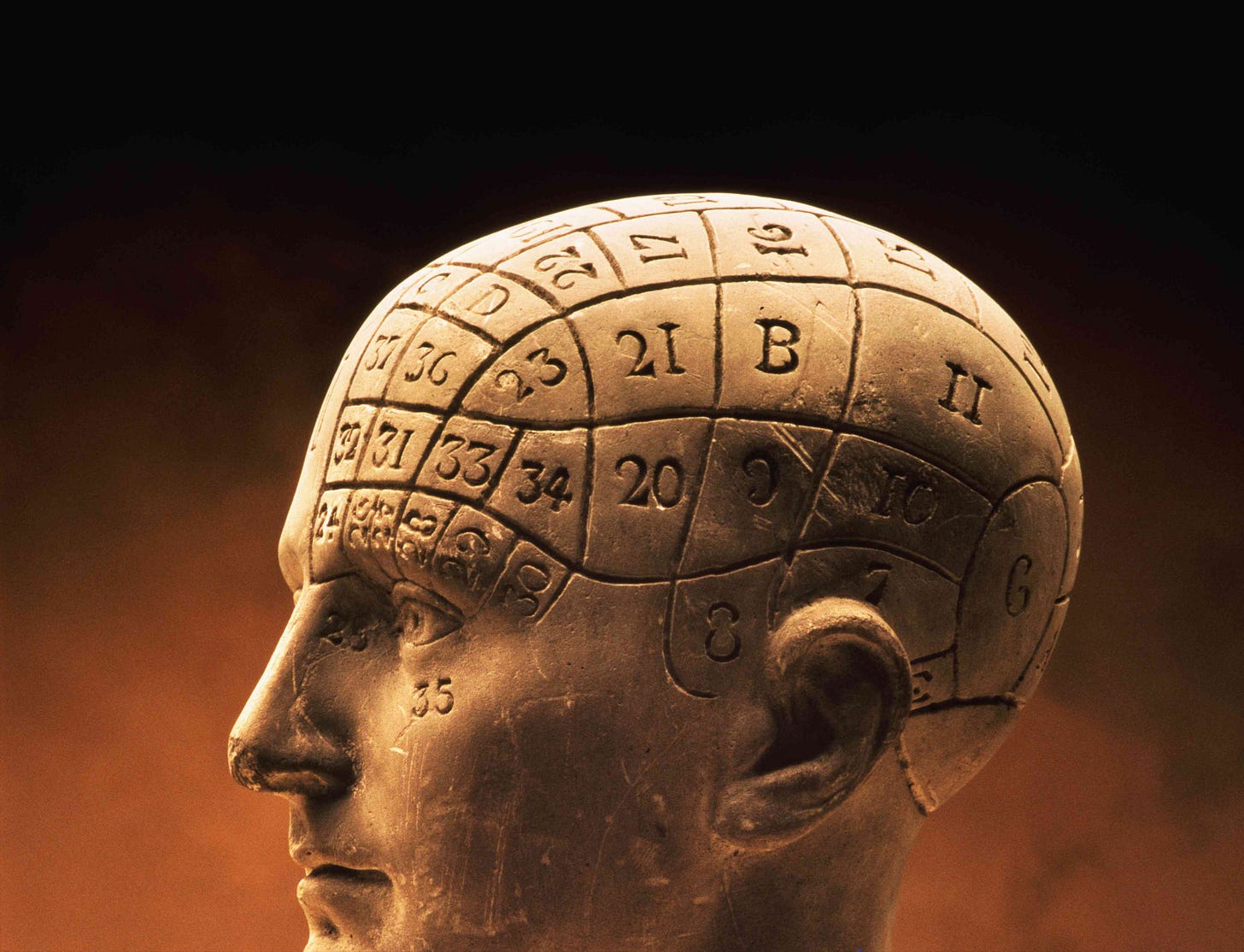
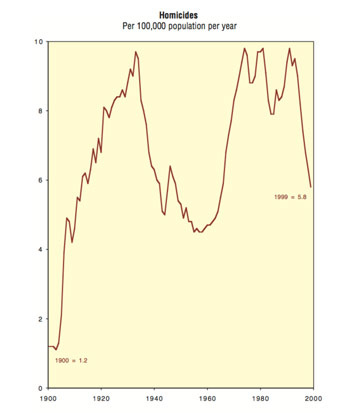
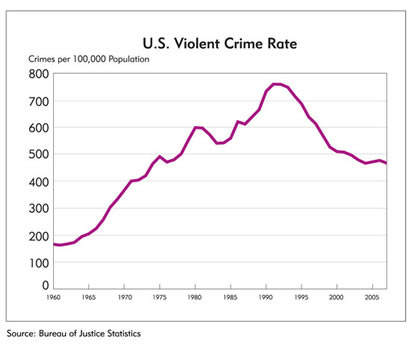

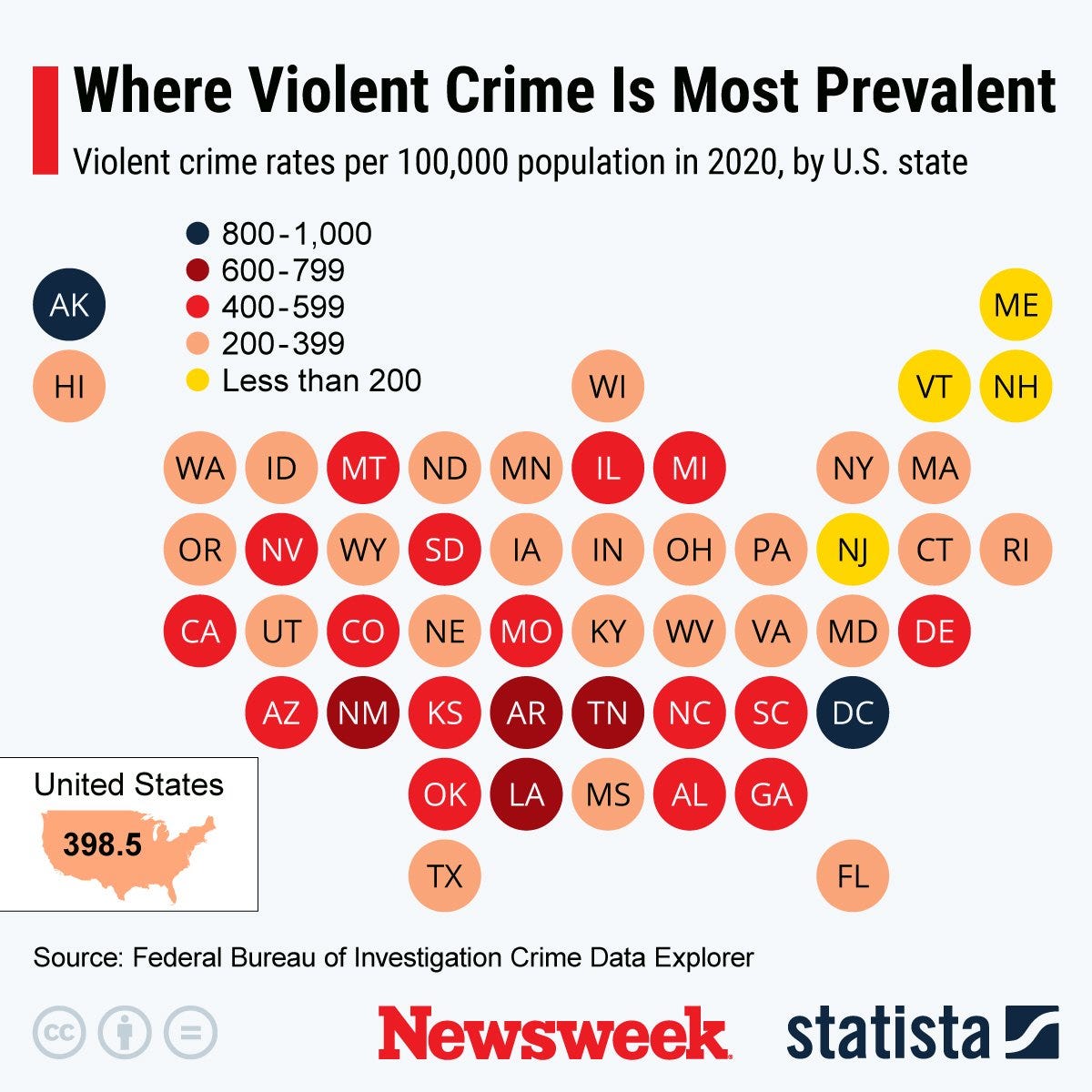
"and want to use math to measure morality"
Desperately seeking simplicity, sadly.